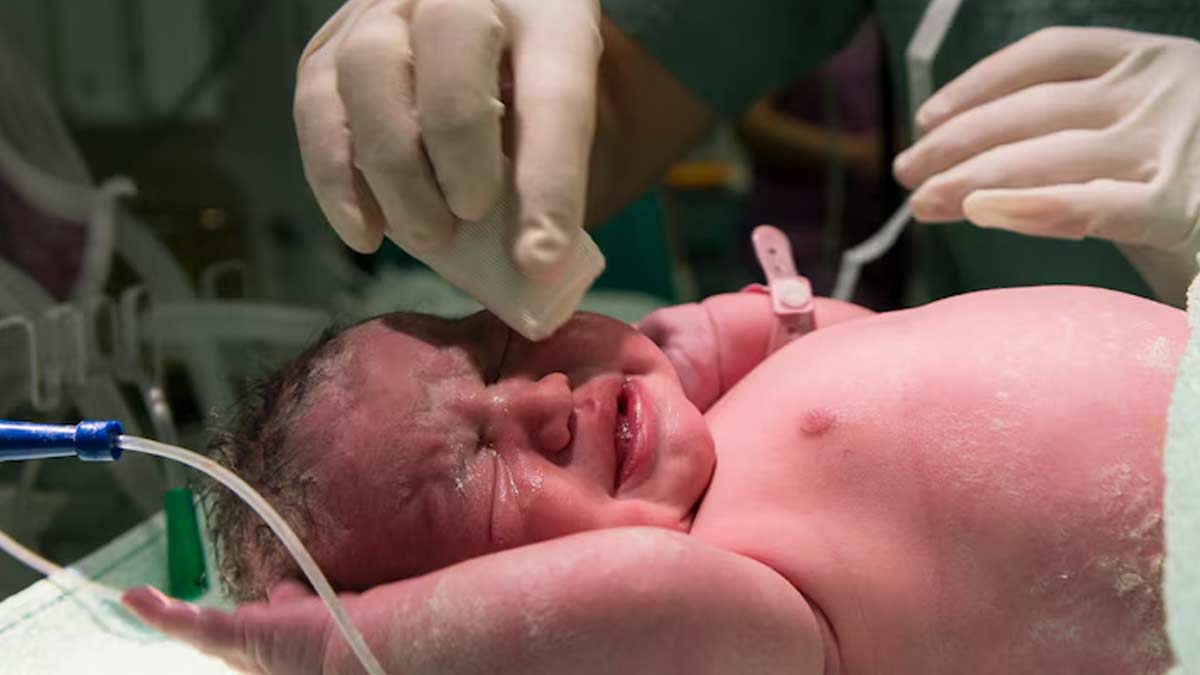
Did you know thyroid issues, when left untreated during pregnancy, can lead to complications affecting the mother and the baby? It can cause imbalances, complications, and developmental delays and also increases your chances of miscarriages. Many women lack the knowledge about thyroid and how it could affect you and your child if left untreated.
Table of Content:-
To help you understand this better, we spoke to Dr Bandana Sodhi, Director, Obstetrics and Gynaecology, Fortis La Femme, GK II, New Delhi, who explained how thyroid disorders influence pregnancy and what steps can be taken to ensure a safe and healthy journey for both mother and baby.

"Thyroid disorders are among the most common endocrine conditions affecting pregnancy. They can present as hypothyroidism or hyperthyroidism. The thyroid gland's role is important in pregnancy as it regulates body metabolism and maternal health. It also helps in fetal brain development," explained Dr Sodhi.
According to StatPearls, pregnancy triggers various changes in the thyroid gland and its functioning, resulting in a 50% increase in the production of thyroid hormones. The daily need for iodine also rises, causing the thyroid volume to expand by 10-20% in areas with sufficient iodine and 40% in regions lacking adequate iodine.
Risks of Untreated Thyroid Conditions To The Mother
Untreated thyroid problems during pregnancy can cause serious health risks for the mother and foetus. Dr Sodhi lists the complications as follows:
1. Hypothyroidism Risks

Hypothyroidism, or underactive thyroid, occurs when the thyroid gland does not produce enough thyroid hormones necessary for the body's functions. It is common during pregnancy, with a prevalence of 2-3% for subclinical hypothyroidism and 0.3-0.5% for overt hypothyroidism, according to a 2016 study.
- High blood pressure or gestational hypertension: It can lead to kidney or liver dysfunction.
- Anaemia: It causes fatigue and weakness.
- Placenta abruption: The placenta can sometimes detach early, risking the baby's health.
- Postpartum haemorrhage: This is heavy bleeding following delivery.
2. Hyperthyroidism Risks
The disease process of hyperthyroidism occurs when excessive Thyroid Hormone (TH) is synthesised and excreted. Dr Sodhi listed the risk of untreated hyperthyroidism as follows:
- High blood pressure (preeclampsia)
- Cardiac problems like high heart rate, which can cause palpitations
Also Read: Thyroid Disorders And Nodules: The Hidden Dangers You Shouldn’t Ignore
Risks of Untreated Thyroid Conditions To The Foetus
1. Hypothyroidism Risks

- Increased risk of miscarriage and stillbirth
- Babies can be of low birth weight in some cases
- Higher chances of premature delivery
- Impaired brain development leads to lower IQ and neurodevelopmental delays
- Congenital hypothyroidism in the neonate is also common
2. Hyperthyroidism Risks
The baby can have foetal growth restriction due to reduced oxygen and nutrient supply.
- Preterm birth
- Baby can rarely have neonatal thyrotoxicosis
Also Read: Can Hair Loss Be A Sneaky Sign Of Thyroid Disorder?

According to the American Academy of Family Physician (AAFP), it is advised to conduct targeted screening for women who are at high risk. This includes those with a history of thyroid issues, type 1 diabetes, or other autoimmune diseases, as well as individuals who have used thyroid therapy in the past or have a family history of autoimmune thyroid disease.
“With suitable medical intervention and certain dietary changes, most women with thyroid disorders can have successful pregnancies with encouraging outcomes for both the mother and the baby,” added Dr Sodhi.
Bottomline
Dr Sodhi concluded, "As we have seen with the above-mentioned complications, thyroid disorders in pregnancy if left untreated, can have serious consequences for both the mother and the foetus. Hence, early screening for thyroid dysfunction should be done during pregnancy. Timely management is essential to minimise the risks associated with hypothyroidism or hyperthyroidism and ensure a healthy pregnancy."
[Disclaimer: This article contains information provided by an expert and is for informational purposes only. Hence, we advise you to consult your professional if you are dealing with any health issue to avoid complications.]
Also watch this video
How we keep this article up to date:
We work with experts and keep a close eye on the latest in health and wellness. Whenever there is a new research or helpful information, we update our articles with accurate and useful advice.
Current Version